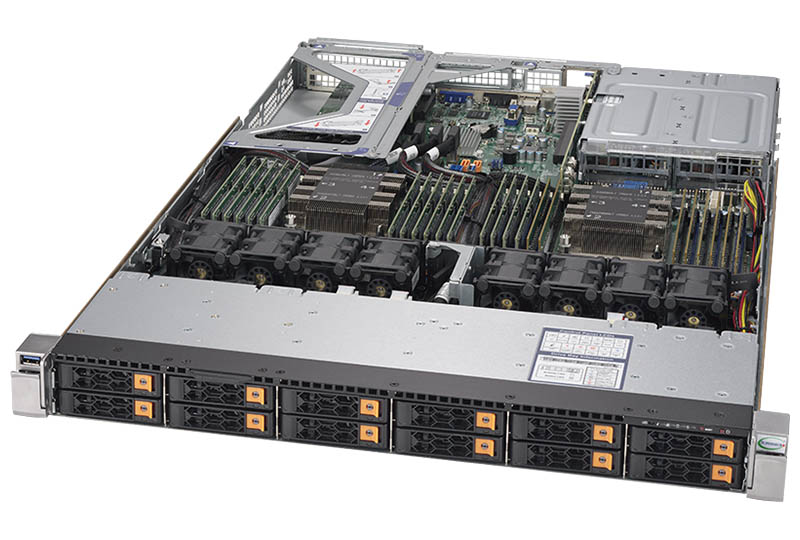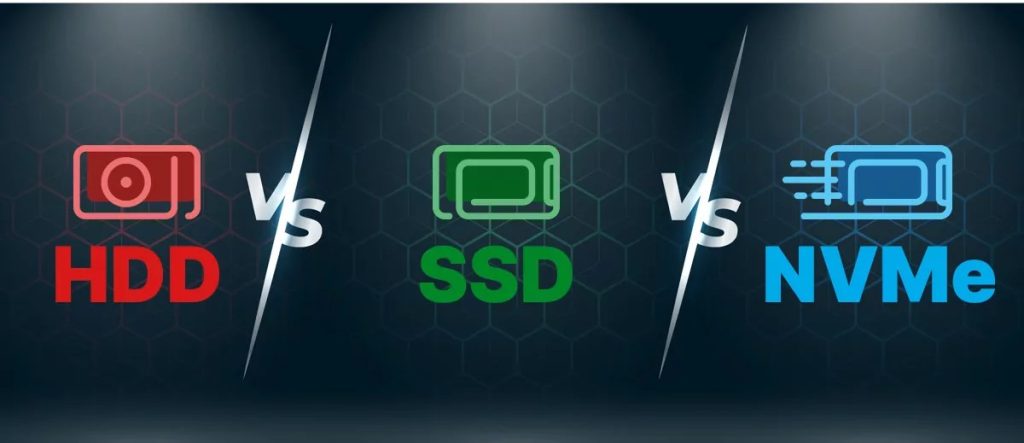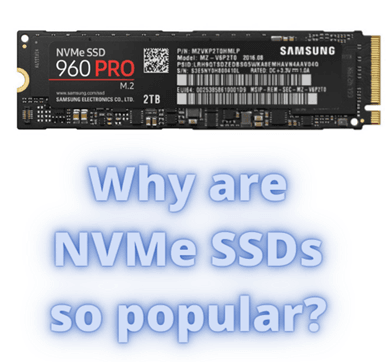Table Contents
- Introduction
- What is NVMe server?
- Why we choose NVMe?
- NVMe Web Server Components
- Comparing NVMe, SSD, and HDD
- Top Benefits of NVMe server
- Conclusion
Introduction
Welcome to the future of data storage and retrieval. Non-Volatile Memory Express, or NVMe, has revolutionized the way servers handle and process data. Gone are the days of sluggish performance and frustrating latency. NVMe servers are here to propel your computing experience to new heights.
What is NVMe server?
NVMe, which stands for Non-Volatile Memory Express, is a high-performance and efficient storage protocol designed for modern storage technologies like solid-state drives (SSDs). It is a protocol designed for high-speed communication between the CPU and solid-state drives (SSDs). NVMe servers are known for their fast data transfer speeds, low latency, and improved overall system performance compared to traditional storage solutions. Therefore, the use of NVMe servers is generally associated with positive sentiments related to enhanced storage performance and efficiency.

Why we choose NVMe?
Today, in both consumer apps and business, users expect ever-faster response times, even as the applications themselves become vastly more complex and resource dependent.
NVMe server is designed to handle high volumes of website traffic and data transfer requests. It is ideal for websites that need fast and reliable hosting solutions, such as e-commerce sites, media-heavy sites, and high-traffic blogs. Therefore, when people refer to NVMe servers, they are often highlighting the positive aspects of fast data access and improved overall system responsiveness.
“Discover unparalleled speed and efficiency with our NVMe servers. Elevate your computing experience with cutting-edge technology for faster data access and superior performance.“
NVMe Web Server Components
An NVMe web server is made up of several components that work together to provide fast and reliable hosting.

- NVMe SSD
- CPU
- RAM
- Network Interface Card (NIC)
Comparing NVMe, SSD, and HDD

HDD uses traditional hard disk drives. They tend to be more affordable and offer higher storage capacity. This makes them a good option for websites that require large amounts of storage, but not necessarily the highest speed.
SSD stands for Solid State Drive. It is used for data storage. SSDs are faster than traditional hard disk drives (HDDs) since they don’t have any moving parts. Therefore, SSD is more reliable, efficient, and faster than HDD hosting.
NVMe Hosting, on the other hand, uses NVMe SSDs which offer even faster data transfer rates and lower latency than traditional SSDs. NVMe drives are designed for high-performance computing and are an excellent choice for websites that demand fast, reliable hosting.
| Feature | NVMe Hosting | SATA SSD Hosting | HDD Hosting |
|---|---|---|---|
| Data Transfer Speed | Very Fast (up to 20000 MB/s) | Fast (up to 600 MB/s) | Slow (up to 150 MB/s) |
| Latency | Very Low (less than 0.1 ms) | Low (around 0.1 ms) | High (around 10 ms) |
| Uptime | High | High | Low |
| Power Consumption | Low | Low | High |
Information may vary depending on specific products and manufacturers.
Top Benefits of NVMe server
- High Performance
- Efficiency
- Low Latency
- Scalability
- Applications
High Performance: NVMe is known for its high-speed data transfer capabilities, low latency, and parallelism. This makes NVMe servers well-suited for applications that demand fast access to large volumes of data.
Efficiency: The NVMe protocol is designed to take full advantage of the performance characteristics of modern SSDs. It eliminates some of the bottlenecks associated with older storage protocols, providing more efficient communication between the storage device and the rest of the system.
Low Latency: NVMe significantly reduces data access latency, meaning that the time it takes for the system to retrieve or write data is minimized. This is crucial for applications where responsiveness is critical.
Scalability: NVMe supports a scalable architecture, allowing for the connection of multiple SSDs to a single server. This enables the creation of high-capacity and high-performance storage solutions.
Applications: NVMe servers are commonly used in data-intensive applications such as database management, virtualization, content delivery, and other scenarios where rapid access to large datasets is essential.
Conclusion
In a world where every second counts, NVMe servers emerge as the champions of speed. Elevate your computing experience, streamline your workflows, and embrace the power of NVMe for a future where data performance knows no limits.
For the most up-to-date and comprehensive information on NVMe (Non-Volatile Memory Express) technology, you might want to explore external resources such as:
- NVM Express, Inc. Official Website:
- NVM Express, Inc.: The official site provides technical specifications, news, and updates related to NVMe technology.
- NVMe Specifications:
- NVMe Specifications: Access the official NVMe specifications, including the NVMe base specification and other related documents.
- Technical Documentation and Forums:
- NVMe Documentation on GitHub: Explore technical documentation, source code, and resources on NVMe’s GitHub repository.
- NVMe Forums: Participate in discussions, ask questions, and learn from the NVMe community.

